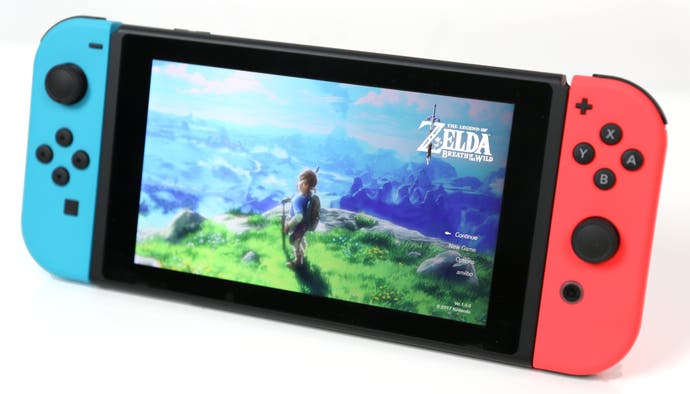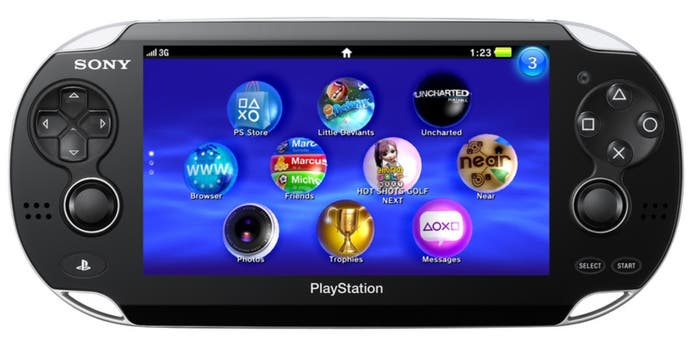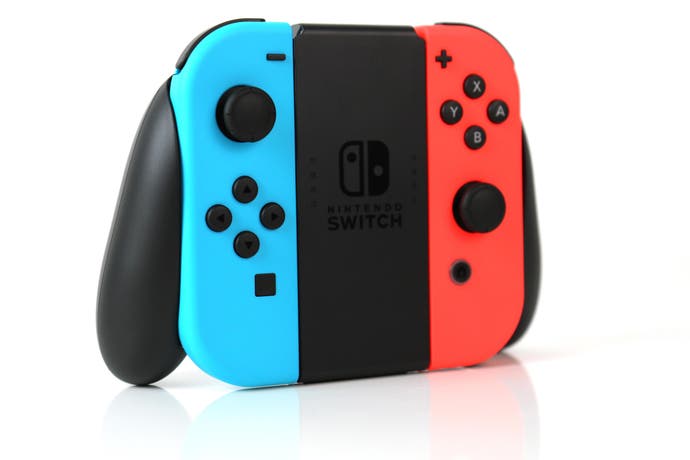Switch has redesigned portable gaming forever
Despite a rushed and shaky launch, it's mission accomplished for Nintendo's hybrid console.
Such is the bizarre, fast-forward nature of Nintendo's latest console launch that it wasn't even two months ago that I was worrying about Switch's prospects after its official unveiling. Those worries, centering on a thin-looking lineup of games that leaned heavily on Wii U ports and eye-watering pricing, haven't really gone away now the machine is out in the wild.
In the last few days we have acquired plenty of new worries to add to them. All signs point to Switch having launched in a hurry, perhaps earlier than will be good for it.
On a superficial level, the marketing has been either bland or non-existent. Here in the UK, advertising briefs were late and underprepared. However, some have suggested, credibly, that Nintendo always intended this to be a soft launch ahead of a big push at Christmas - and it wasn't likely to have difficulty shifting its early stock either way.
More seriously, turn Switch on and you're met by a startlingly basic proposition that makes even PS4's bare-bones firmware at launch look opulent. A functional digital store and a semi-functional friends list is about the size of it. The online service and its accompanying smartphone app aren't ready (not that there are any online games to test it with anyway). There are no non-gaming apps whatsoever. Memory management is limited - as is memory, come to that - and has frustrating restrictions, such as game saves being locked to hardware. For a Nintendo console, it's bereft of personality. There are no quirky social concepts like Miiverse or StreetPass, and there's no jaunty menu music, though perhaps these won't hurt its chances with a wide audience.
Most ominous are the hardware issues. Such is the clamour of anecdotal "evidence" on the internet these days that it's hard to pick genuine design and manufacturing flaws out from the noise: is Switch really prone to overheating? Does the admittedly cheap and tacky dock scratch the screen? The poor wireless performance of the left Joy-Con controller stands out as a serious and widespread issue for which Nintendo has no easy answer, beyond avoiding other wireless devices, as if that was possible in 2017.

It feels like Switch is a few firmware updates and perhaps even a hardware revision away from really gelling. Yet sales appear healthy - if nothing else, it's indubitably a more successful launch than Wii U. And beneath the launch drama, it's easy to pick up on a generally positive vibe about the machine that isn't solely down to The Legend of Zelda: Breath of the Wild, Nintendo's best game in a decade and the best console launch title since Halo: Combat Evolved. What's gone right?
It turns out that one of my early worries - that Nintendo was failing to properly explain yet another off-the-wall challenge to gaming convention, as it had with Wii U - was unfounded, or rather, irrelevant. Switch explains itself with perfect clarity. Unlike Wii U, its mission as a proof-of-concept for a hybrid handheld and home console is clear. That concept can already be considered proven, that mission accomplished.
It's when you flip the pitch that Switch really starts to sing. It's a good console but a glorious handheld
As I played Zelda for review, I was struck by how easily this huge game fit into my life, despite a hectic schedule and a new baby at home. I noticed how often I ended up playing it in Switch's portable mode, even though the game's grand visuals and epic scale seemed to beg for a big screen. It was compatible with whatever else was happening in the house. I didn't have to plan to play it, to eke out the time, to waste even a minute looking at boot-up and loading screens. I just had to reach out, pick up the console and click the power button to resume my adventure immediately.
Nintendo's pitch for Switch is the home console you can take on the go. That pitch works and is well supported by the reality. It's necessary for players to understand that this slim tablet really does offer a credible, if not cutting-edge, console-quality gaming experience that can be plucked out of the TV context. But it's when you flip the pitch that Switch really starts to sing. It's a good console but a glorious handheld, with a lovely screen, great and multifaceted controls, TV display support, and an amazing adaptability that brings the games to you, however and wherever you want them.
It's important to stress that you don't need to care about gaming out of the house - I generally don't myself, beyond fiddling with a puzzle game or solitaire on my phone - for Switch to make a special kind of sense to you. It's as a 'home portable' that it's a revelation: a machine that untethers your gaming from the living room TV, just as the iPad untethered the internet from the desk in the home office. (In this context, its short battery life isn't such an issue.)
I was unsure about Zelda bearing the responsibility for defining Switch at launch, considering that it had started life on another console, and that the Switch version didn't offer anything unique or intrinsic to the new hardware. In fact, it turns out to be a perfect demonstration of what Switch can do, precisely because it's exactly the sort of game that's not supposed to work in a handheld context: it's too technically ambitious, too complex, too demanding of players' time and of screen real estate. And yet work it does, brilliantly so.
We've been here before, or somewhere not far from it. Sony's PlayStation Vita was sold on the idea of triple-A console gaming on the go, and for the time, it was a capable device which executed that idea quite well. But the market rejected the idea, and the machine ended up as a niche hothouse for indie and arcade games instead. The received wisdom has since been that Vita was selling something people didn't want, especially in the smartphone age. So how come Switch is making a similar concept work?

For starters, there is no more convincing test for claims of console quality than splashing them across a big HDTV screen. And the extreme flexibility of the machine's form factor helps, too. Support for local multiplayer on one unit and for tabletop use prove that its console-equivalent credentials aren't compromised when the device is undocked. (Switch can also rely on the full might of Nintendo's in-house developers for support, something Vita never had.)
It's also, I think, a question of timing - in terms of both technology and sociology. Mobile graphics tech has been catching up fast and is now able to offer visuals at full HD resolutions that are only a few years off the pace. Nvidia had the right idea with its Shield gaming tablet, it just didn't have the software or hardware design chops to back it up - so it made perfect sense for the tech firm to partner with Nintendo, which unquestionably does possess such things, on Switch.
Here is a device that seeks to fit gaming into your life rather than seeking to remove you from it
The wider picture is our rapidly changing relationship with our screens and our entertainment. Over the last few years, a mass audience has come to expect entertainment to find them where they are, regardless of format. We binge-watch TV box sets on our laptops and catch up with sports highlights on our phones. Any screen is big enough, and no location is unsuitable; all content is context-agnostic. In this world, the idea of console-quality gaming on the move is no longer unfashionable, it's the natural order.
Switch isn't perfect, the challenges ahead of it are many, and some of those challenges may yet prove insurmountable. I may be a convert, but I'm not ready to say that the hybrid console concept is a mass-market slam-dunk or a realistic challenge to the industry's status quo. But I am ready to say that it makes sense, and that Switch makes perfect sense of it. Switch is portable gaming redesigned, with no boundaries and next to no compromise. Beyond that, while others pursue the hermetic immersion of virtual reality, here is a device that seeks to fit gaming into your life rather than seeking to remove you from it. For that alone, I'm on board.


